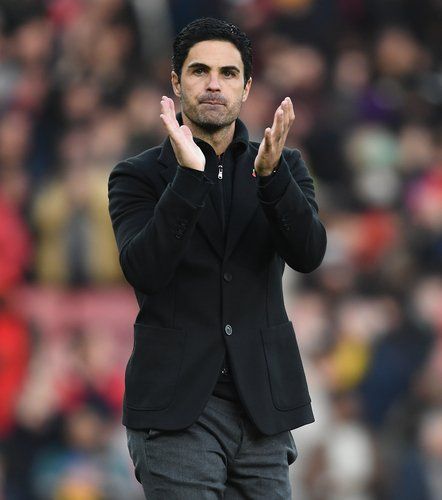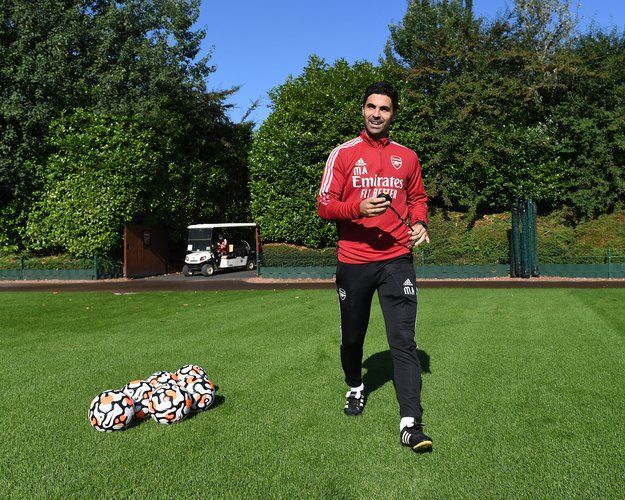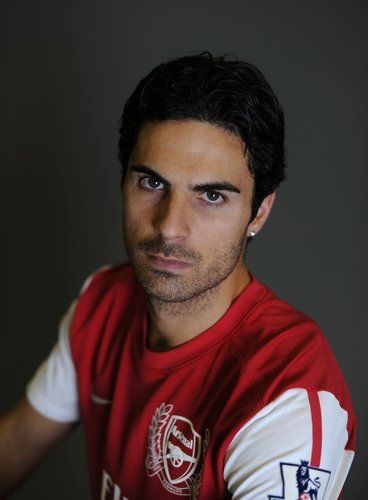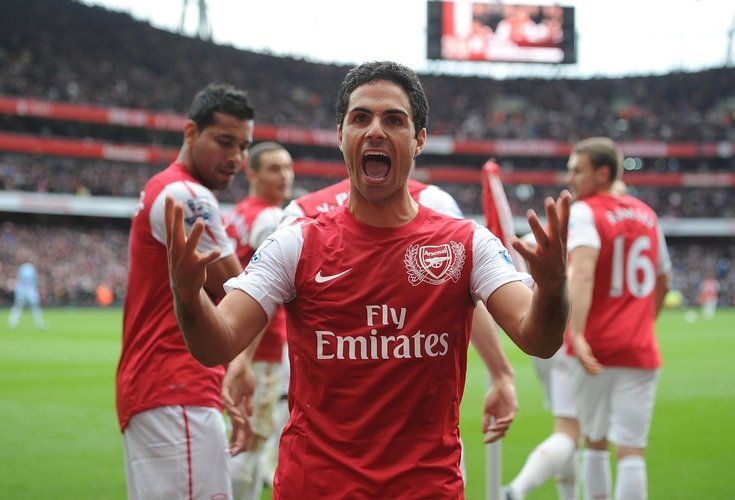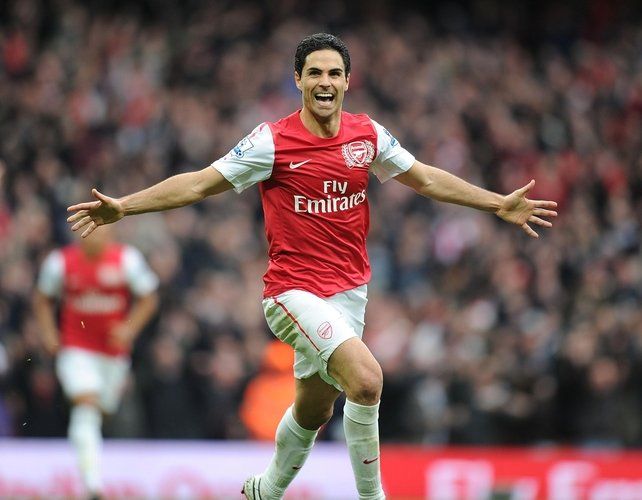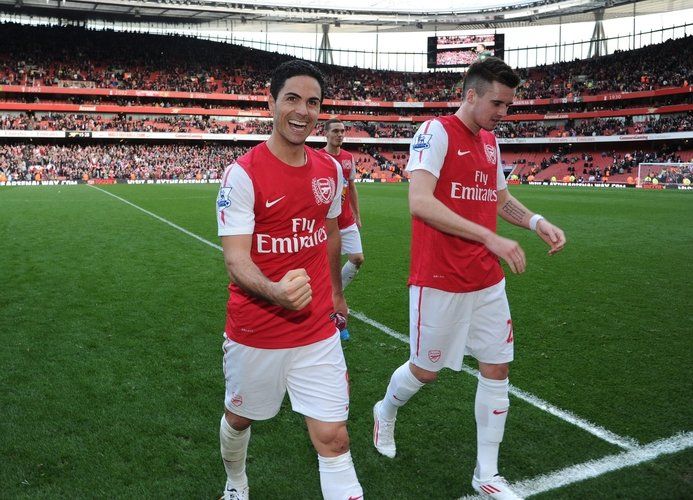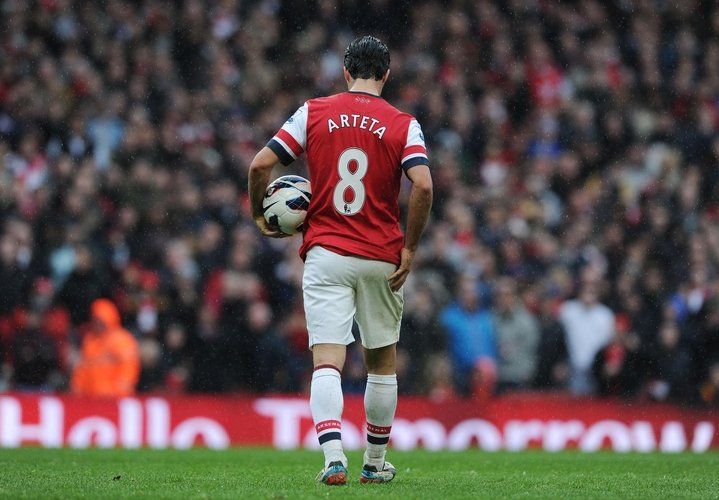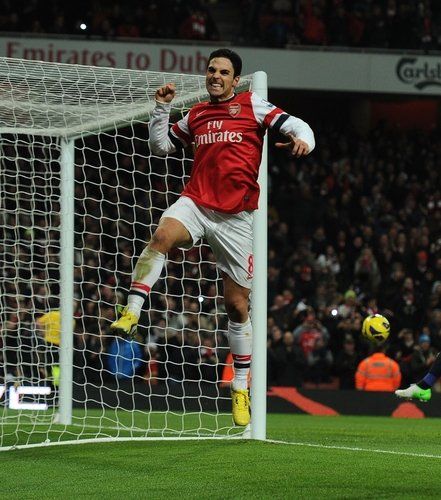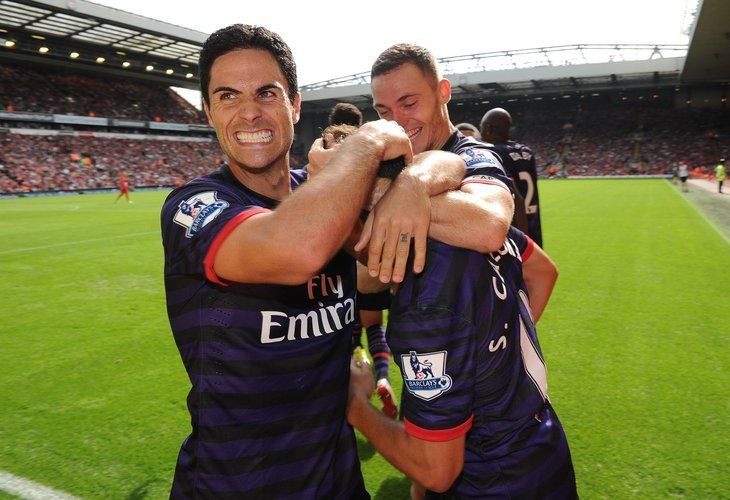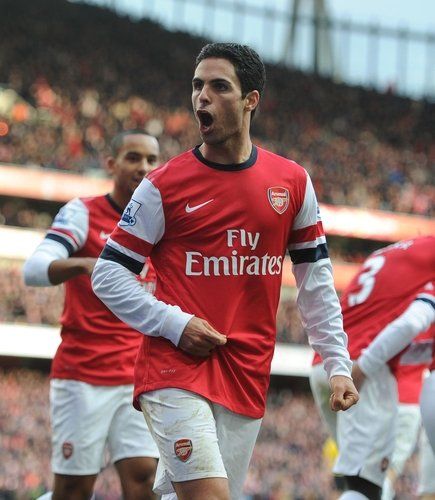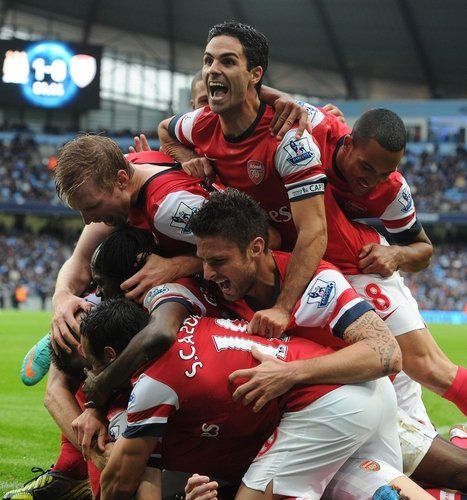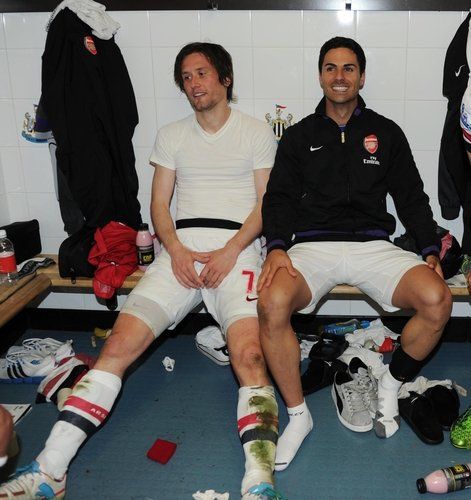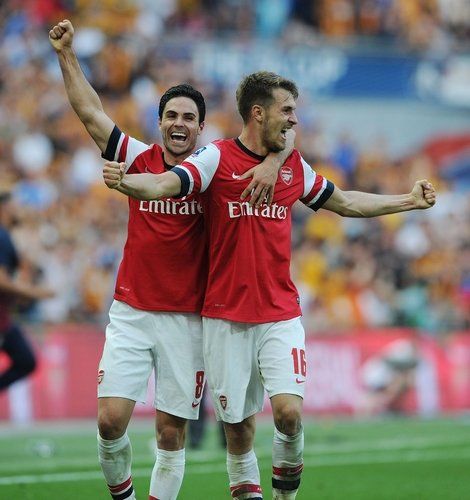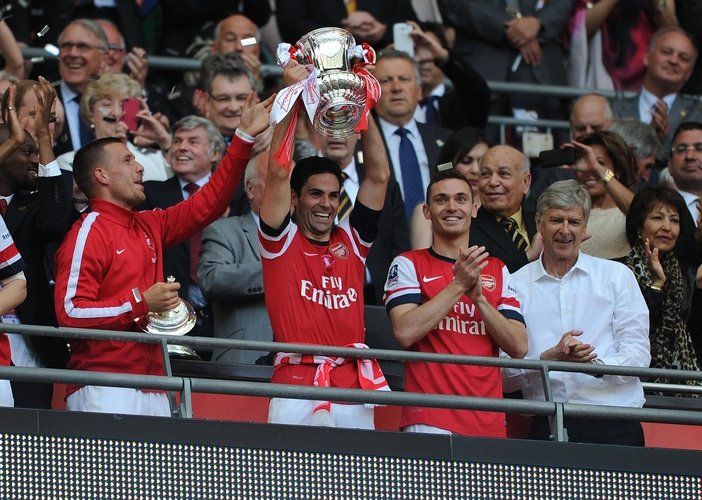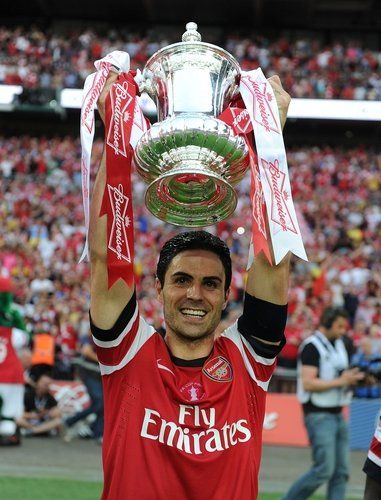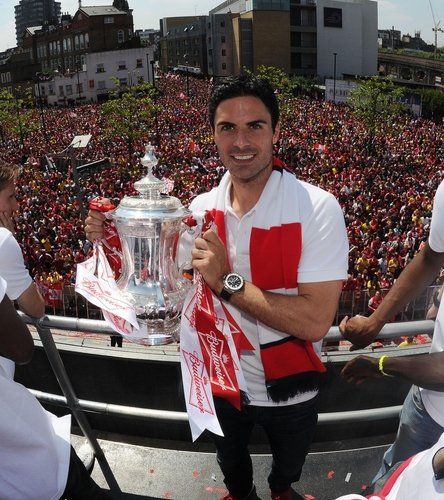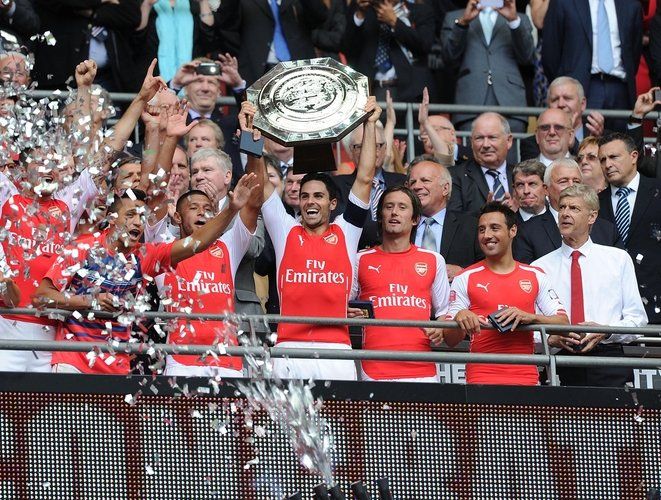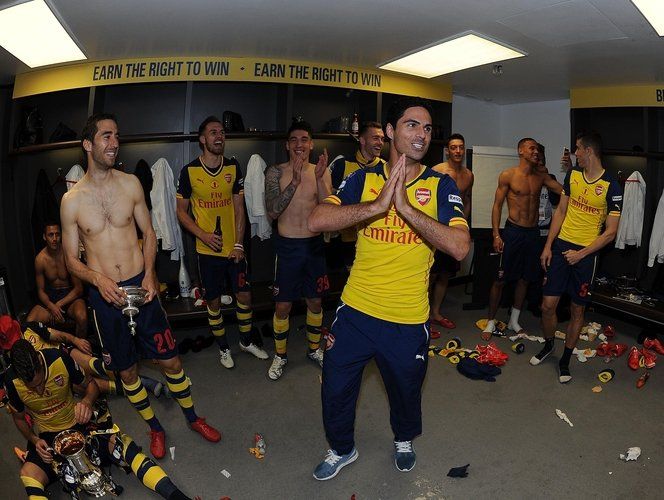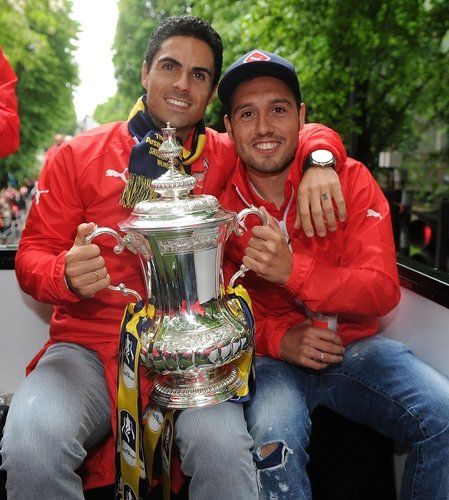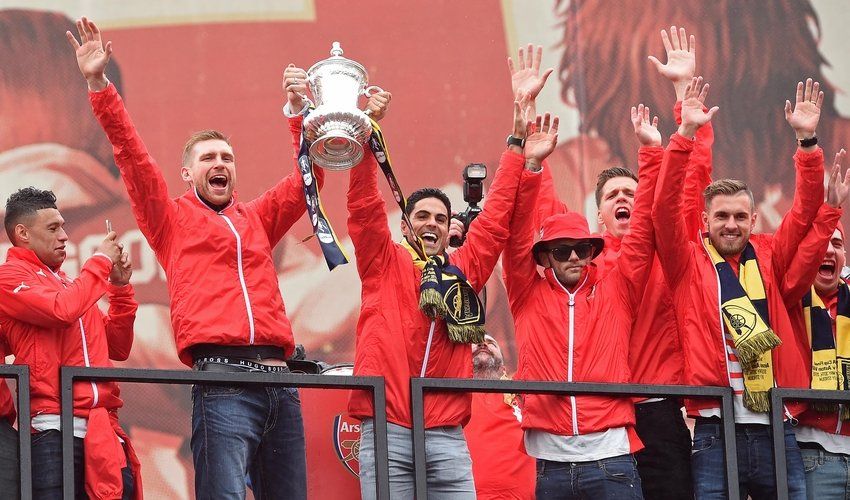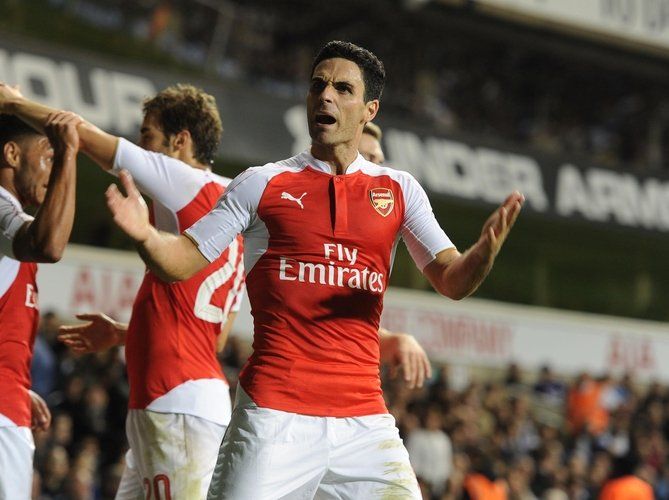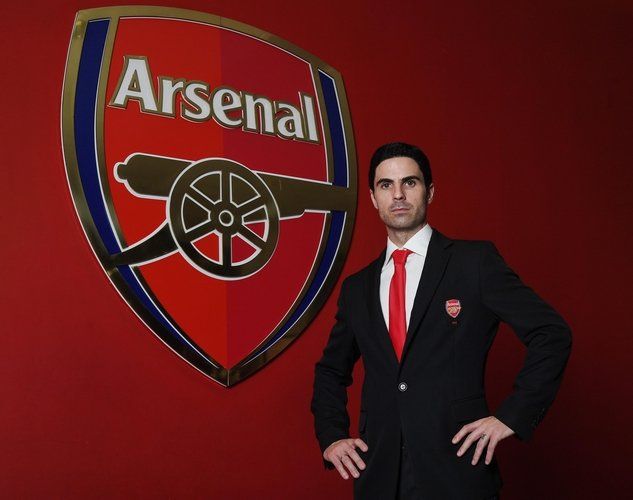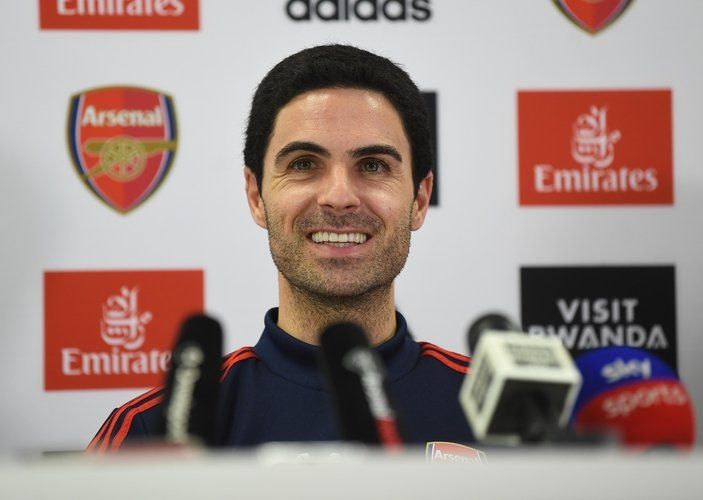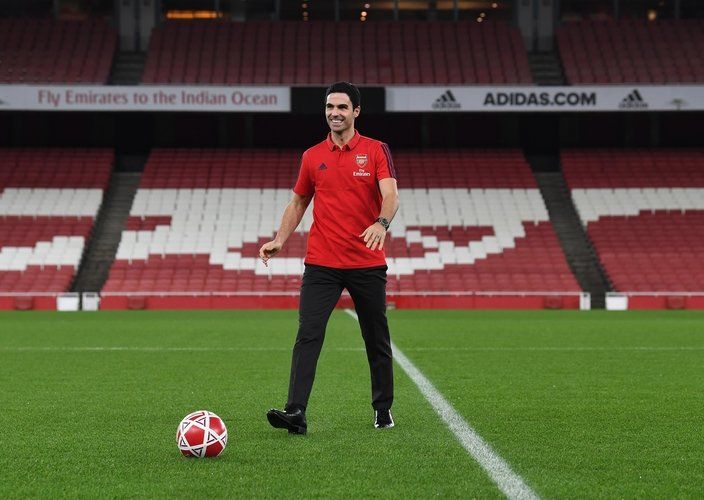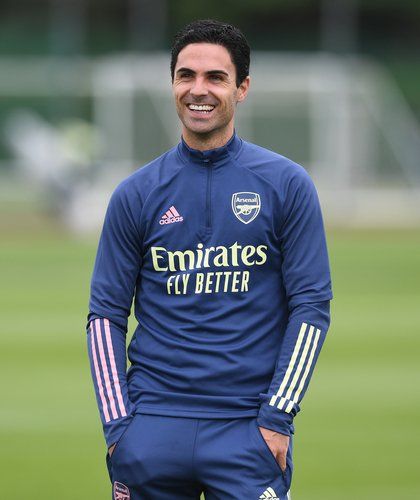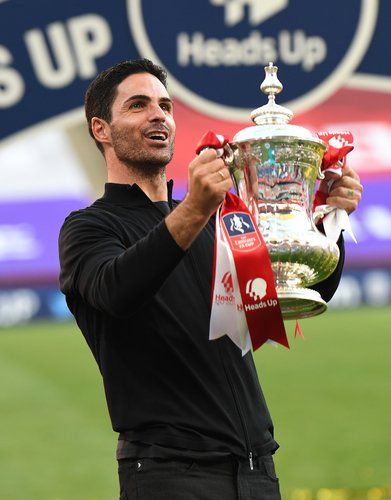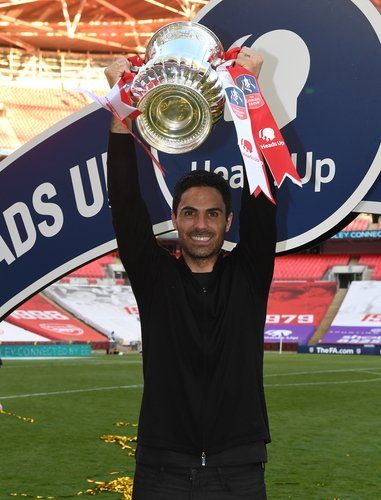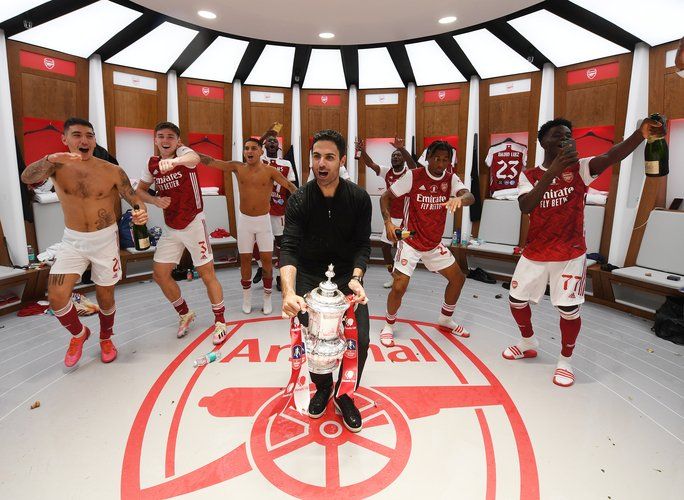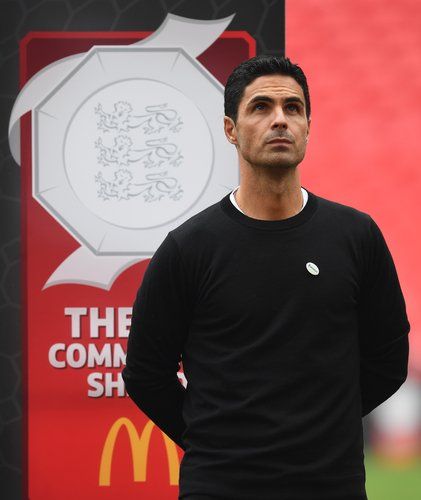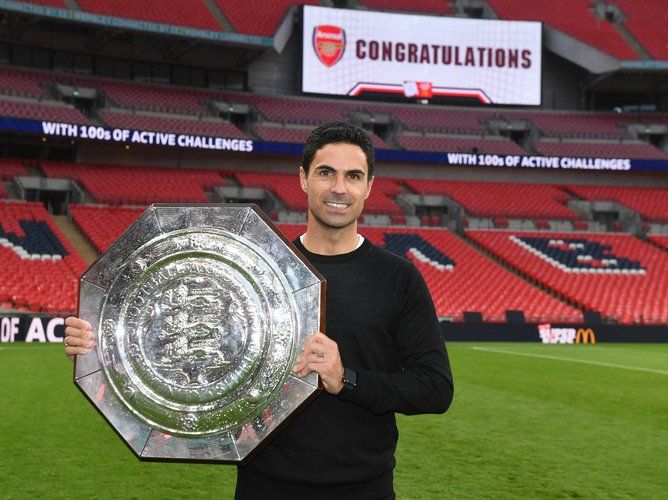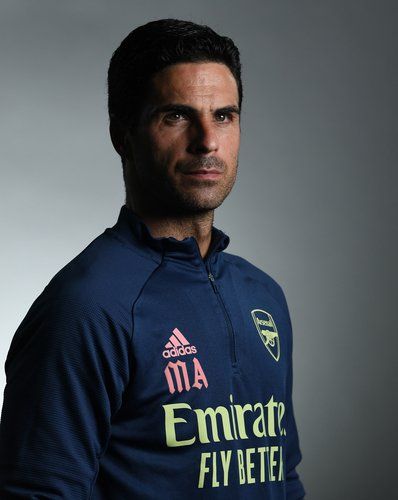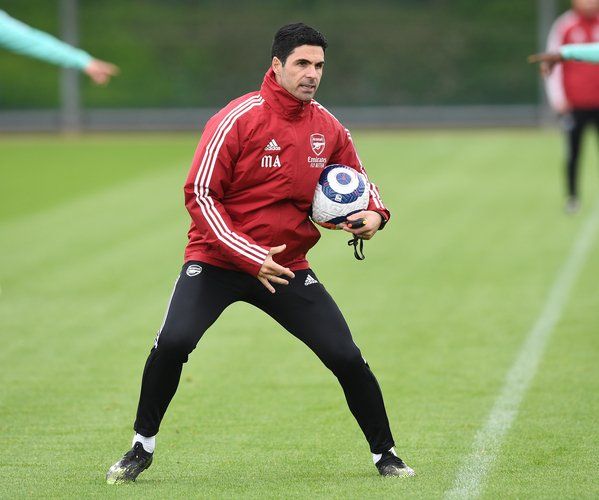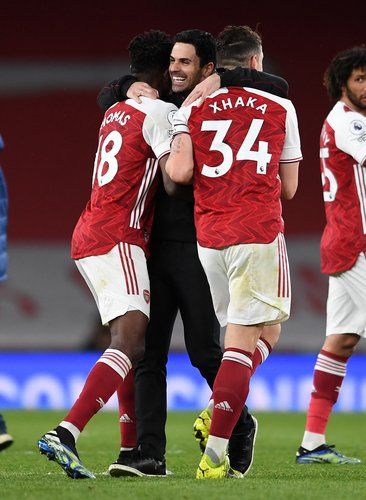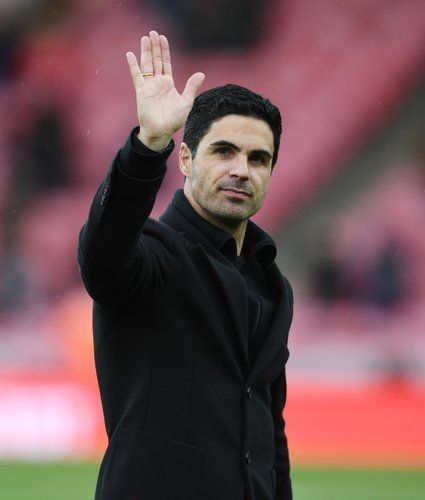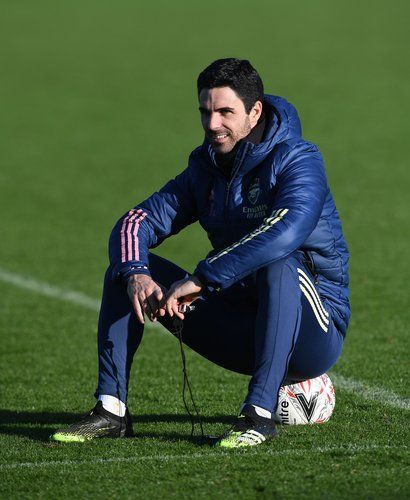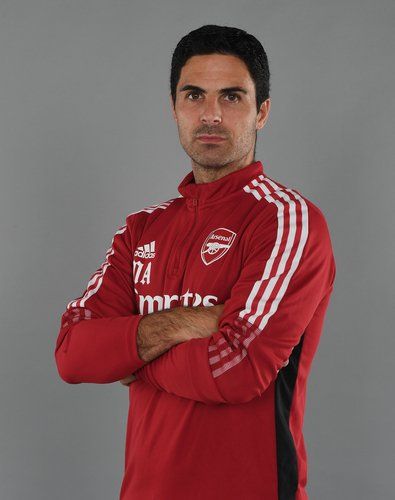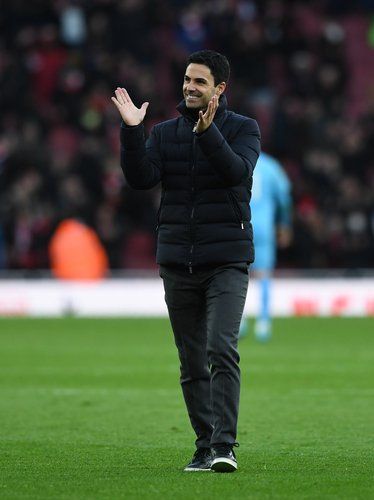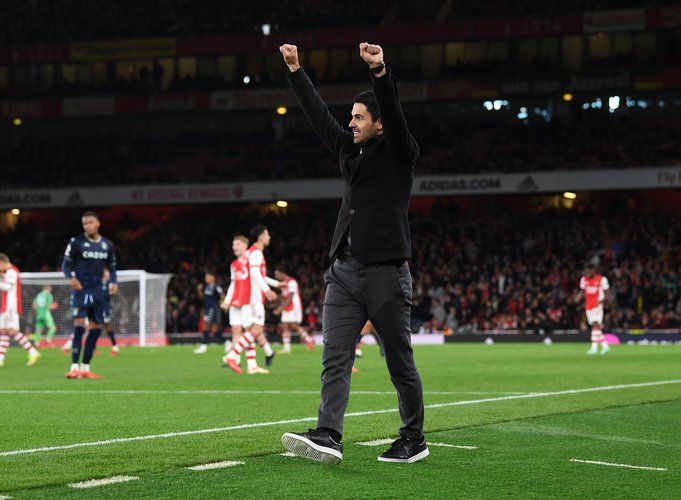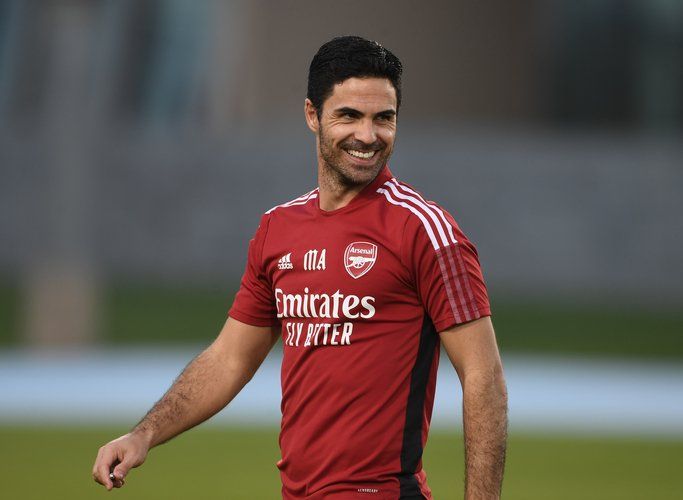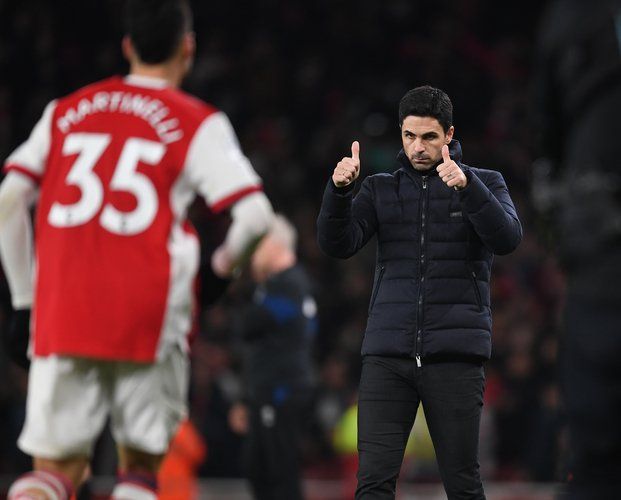As our manager celebrates his 40th birthday, the youngest boss in the Premier League explains the benefits of working with a youthful, vibrant squad.
It's fitting that the youngest squad in the Premier League this season also has the youngest manager. Mikel Arteta was 37 when he took over in December 2019, and since then he's overseen a large-scale transformation of the squad, while helping to reshape and unite the club off the pitch.
After winning the FA Cup at the end of his first season, Mikel has continued to build and develop the playing staff, but just as important a task in his eyes, has been to reconnect the fans with this vibrant team.
There have been some bold decisions along the way. Each of the 18 youngest starting lineups named by Premier League sides this season have all been Arsenal teams (usually around 24 and a half years old) and our two top scorers this term are both academy graduates.
The club also had a clear youth policy in the summer, recruiting only players aged 23 and under, and the signs are it's all beginning to bear fruit.
Going into this final international break of the season, Arteta's young charges are four points clear in fourth place, seeking to qualify for the Champions League again after a five-year absence, but with a lot of work still to do.
"I feel young because I'm surrounded by a lot of young energy, a lot of enthusiasm"
So as our boss celebrates his 40th birthday, we spoke to him about previous milestone birthdays, how he has grown the energy and enthusiasm around the club, but we started by asking whether it was a conscious decision to build his squad around youth.
"Well when I went into management I had a clear vision of what I wanted to accomplish with Arsenal," he begins. "I wanted to build a winning team that was also financially sustainable and that could transmit the values, the identity and the passion that the club has had over the years.
"To do that we had to make some important decisions and get the club moving in the right direction, so that we could also achieve that in the long-term.
"There have been some very difficult decisions to make. First of all you need to come up with a plan. You have to have a lot of support from within the club to do it, and then the decisions need to be right.
"Until now I think one of the biggest successes has been to create – as a club – a culture and an atmosphere where our players, staff and everyone can feel that this is a place where they can fulfil their potential.
"It is a place where they can grow, they can participate and everyone can add value to the club. When you get that, you create a real sense of belonging and that's something more powerful than just personal interest. I think that's been one of our biggest wins so far."
Although Mikel is the youngest manager in the league currently, he has a wealth of experience from his playing days, that he draws upon when dealing with young players now.
Aged 20, he was playing for Paris Saint-Germain alongside the likes of Ronaldinho, Jay-Jay Okocha, Mauricio Pochettino and Nicolas Anelka.
It was the Spaniard's first real taste of senior football, having been loaned from Barcelona, where he had been representing the B team as a teenager.
"On the journey throughout my career, whether as a player or a manager, I've have to always adapt," he explains. "You have to go into an environment and be bold and determined to give what you can. At that moment in Paris it was a big challenge to move away from my country, without speaking the language. To go into a team that was full of stars but with a coach [Luis Fernandez] who lifted me and gave me an amazing opportunity. Then you have to have the personality and character to impose yourself and grab it.
"I think you need some senior players around you to set the standards and a good example. They can guide you, protect you, encourage you and to turn the fears that you can have at that age into confidence. Then it's up to you to have the personality, the hunger and the passion to retain that level."
"When you sense their participation leads to a huge improvement for the team, you feel fulfilled as a manager"
The boss adds that he often thinks back to those days as a 20-year-old player himself when managing the side now.
"You have to analyse the profile of the squad, and in our case we have the youngest squad in the league. Then you analyse how you can maximise that potential. You have some restrictions and some 'bills to pay' when you have young players. They can make mistakes, and the first time they do that you don't know how they'll react.
"With younger players it's more complicated and you need the coaching staff, the supporters, everybody around the club to be more supportive when those moments arrive.
"You have to be aligned to give the players the right environment and protection - and sometimes the right push - that's necessary. Obviously before we sign them we do a lot of work to understand whether they can adapt and evolve in our culture and if they have the qualities they need to be successful in our team."
And one of those non-negotiables for young players to succeed under Mikel, he says, is to get a grip of the language.
"Playing in one of the more difficult leagues in the world is a different challenge depending on where you have come from. But also it's about how much they do to adapt. They might not speak English when they arrive, but what can you do in a month or two months? They might say 'it's difficult for me' but how much are you really trying? Because for me the language is an absolute basic. It's the platform for everything. If not, you cannot communicate, make yourself understood or noticeable. You cannot create your figure, your identity, within the dressing room and the club without being able to communicate.
"It's impossible, so I always put a lot of emphasis on players when they arrive - the first thing is you have to learn the language. You have to be able to communicate. That's whether you are coming from the academy or not it doesn't matter - you have to be able to talk with your teammates. It's something we talk about because in my opinion it's a key to success."
Fast forward ten years to Mikel's 30th birthday, and by now he's also played for Rangers, Real Sociedad and Everton before joining Arsène Wenger's Arsenal. Aged 30 he was a mainstay of the midfield, but he already had his thoughts on management.
"Yes, I started to think like that when I was 27 or 28," he reveals. "I was already doing my badges at the time and I had that feeling that my body would start demanding very soon to start understanding the game from a different point of view.
"But at that time I was still loving playing and enjoying the great moments we had."
One of those great moments around his 30th birthday was a famous 5-2 comeback win over Tottenham at the Emirates. So having experienced north London derby elation as both player and manager now, how do the feelings compare?
"It's different, because personally the nicest moment after any big win is the atmosphere in the dressing room. The interaction with the players, the emotion, adrenaline and togetherness. That's unique and I think it's what players miss when they stop.
"As a manager you have that emotion and passion - but there's also a relief there sometimes. You are also thinking about the players that haven't had any game time. You think about the players who weren't involved in the game are feeling and you want to look after them as well. You want to have everybody on board and remind them how important they are for the team. At the same you are thinking 'OK I need to prepare for the next match, how am I going to do that?' So it's non-stop as a manager.
"But mostly the feeling to be able to make your supporters happy is very, very special. At the end that's what this job is all about. We can make them feel connected with us, and when they are with us it's like they're adding another engine to our boat to make it more efficient and even faster. When you can sense that their participation leads to a huge improvement for the team, that's when you feel fulfilled as a manager."
And is he particularly proud of getting results while being the youngest manager in the league, and beating much more experienced counterparts?
"Honestly, I don't really think about it, because for me age is relative," he says. "It's relative for me as a manager and also for the way I look at players. Because for me when people say someone has a lot of experience, what does that mean? Experience of what kind? That's what is more relevant. So how much experience do I have? A lot or a little, I don't know because I have been in this league for 20 years. So even though I am Spanish I have experience of this country, I have lived here, I understand the league, the culture, the players.
"So I don't know, I just feel lucky to be part of this club, especially at this moment. And especially now when I feel there is a real sense of unity and when I see there is an energy. When I visualise the club and when I see the Emirates I see energy and direction. I see we are connected as a club and that empowers me and gives me the energy to say 'we can do this and we believe.'
"When I visualise the club I see energy and direction. I see we're connected as a club and that empowers me"
It's that energy that Mikel says is helping him feel young and fresh, as he reaches what can be a landmark age for many people.
"Yeah, I feel really young to be fair because I am surrounded by a lot of young people," he smiles.
"The players are younger than me of course, but some of the people I work with are older than me and they have all the right responsibilities at the club.
"So I'm surrounded by a lot of young energy, a lot of enthusiasm and as well people with more experience so it's a good mixture. I feel like I am in the prime of my life. I have three beautiful kids who are growing up, I have a wife who I'm totally in love with and a family who are always there for me, in the difficult moments.
"I am very lucky as well because I have a lot of good friends that I have made through football, in the early stages of my life, and they know who I am and what I'm like, and I can trust them. So I'd say I have a really stable, but exciting life. I have enough adrenaline and unpredictability, but at the same time I have a family base and emotional support that I think is required at this stage in your life."
Known as a lively, intense, energetic figure around the club, does Mikel believe that his youthfulness is essential to be able to meet the demands of modern football management?
"Well you have to realise that when you come through the door each morning they are going to be testing you. You go through the scanner of everyone's eyes when you are at Colney or the Emirates.
"You need to be yourself and I want people to understand that if I'm here, it's because I think I can give the best of myself for the club. That's by showing the passion, the energy and the immense feeling of gratitude and clear direction of where I want to go. Because if you don't have that, you will get found out very quickly."
This week though, it's a very rare weekend away from football. He says he will be spending some time away with his wife, before a lunch and birthday party with his kids and extended family. And what of the future? Has Mikel thought about what he'll be doing when he reaches 50?
"I think I will look older, that's for sure!" he laughs "I will have some more grey hair but I think I will still have the same passion about what I do.
"Hopefully by then we will have been able to take the club to a different level. I hope we'll have made our people very proud of what we've done."
Mikel at 40: Click below for our gallery of Arteta pictures from through the years
Copyright 2025 The Arsenal Football Club Limited. Permission to use quotations from this article is granted subject to appropriate credit being given to www.arsenal.com as the source.





